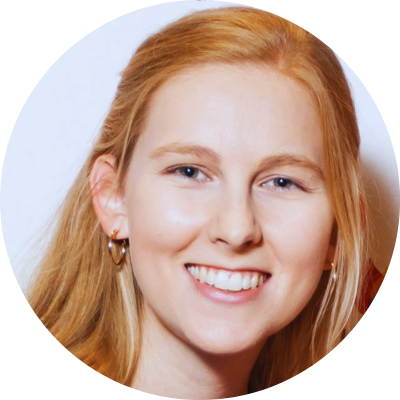Deacon Spotlight: Mary Daniel Cheek
Mary Daniel Cheek (2019, BA in Sociology and Politics & International Affairs)
Development and Communications Coordinator at Little Lights Urban Ministries in Washington, DC
Tell us about your current job role and employer. What are you currently working on?

I serve as the Development and Communications Coordinator at Little Lights Urban Ministries, a faith-based nonprofit that provides compassionate support and practical resources for underserved children, youth, and families in Washington, DC. In this role, I write and disseminate digital and mail communications, direct all donation processing and database management, and steward relationships with donors. Currently, I am preparing marketing materials for a 24-hour giving event we host each spring.
What key personal and/or career experiences led you to where you are today?
After graduation, I participated in a nine-month spiritual formation and vocational discernment cohort. Through this program, I met so many thoughtful and generous people who were doing important and high-level work in DC, yet were so willing to share honestly about the highs and lows of their faith-informed career journeys. I benefited greatly from receiving this wisdom and from taking the time to develop a clear theology of work before entering the workforce full-time.
What is the most challenging aspect of your job? How do you navigate that challenge?
The most challenging aspect of my job is telling the stories of those my organization serves with dignity and respect, while also providing honest storytelling about the hardships faced by families living in public housing in DC. Building genuine relationships and earning the trust of community members over time has allowed me to share their stories in an honoring and compelling way that inspires donors and volunteers to partner with us in our work.
What advice would you give to Wake Forest graduates about developing their personal life habits after college (finances, health, values, work/life balance)?
Identify those in your life who have a healthy ordering of work and life outside of work and ask them how they built and maintain their habits. The chances are high that those you know made mistakes early on in their careers that they would be eager to help you avoid. Be curious and seek wisdom from your community – they are there to help you thrive!
We know that relationships are important for any kind of development. How do you build and maintain your network?
Participating in the Young Alumni Mentoring Group led by Allison McWilliams with other recent grads in the DC area was instrumental in helping me cultivate the skills required to build my network. Before this program, reaching out to professionally connect with others felt daunting and transactional. Now, I look forward to having phone calls or coffees with people whose career or philosophy of work I find inspiring.
I have found the most success in building my network by moving quickly to schedule time to connect. If I meet someone who I want to chat further with, I contact them the next day to strike while the iron is hot. People are generally very willing to continue the conversation, but that willingness can decrease over time as the memory of the initial interaction fades. To maintain my network, I provide brief, periodical updates to those I connect with as a way to share about my career and thank them for their role in my vocational development.
Tell us about your mentoring relationships. What impact have these relationships had on your career and life?
I’ve had two mentors who have blessed me with their wisdom, have been so generous with their time, and have been quick to connect me with others in their networks. I still meet consistently with one of these mentors and she is good at asking the hard, yet important questions. In a mentoring relationship, I value someone who is encouraging and is eager to see me succeed, yet knows when to challenge me.
What advice would you give to current Wake Forest students and/or young alumni who are interested in working in your industry?
For anyone considering working for a nonprofit, I would emphasize the importance of being flexible. Needs, resources, and the scope of work are ever-changing when you work for a small, mission-driven organization. This means that employees who want to contribute well and succeed need to be okay with change and willing to adapt to that which benefits the organization and those it serves.
What’s next for your career? What future goals or plans are you pursuing?
While I am unsure of what is next for my career, I know that I want to continue doing meaningful work that uplifts others and makes good use of my skills and interests. Currently, I am in the process of discerning whether I should attend law school in the near future.
Story published in April 2025. For current updates about Mary Daniel, visit her LinkedIn.
